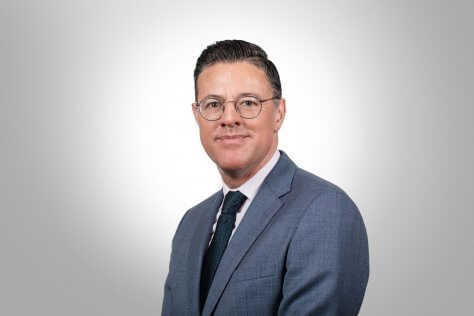CNME Editor Mark Forker spoke to David Parker, Co-Chief Investment Officer, Bahrain Economic Development Board, to find out how the Kingdom is leveraging cloud technology to position itself as a leading startup nation.

The Bahrain government has been pursuing progressive new strategies that revolve around emerging technologies as part of its continued efforts to diversify its economy and reduce its dependence on oil.
Parker has played a key role in helping foster an environment that makes Bahrain an attractive destination for foreign investment in the ICT sector.
In a compelling interview Parker articulates the lofty ambitions of Bahrain to be a hub of technological advancement – highlighting how it is deploying cloud technology to drive innovation and entrepreneurship.
He also stressed how the country wanted to be a key figure in the Fourth Industrial Revolution.
“People talk about the Fourth Industrial Revolution, but we missed the first and second industrial revolution back in the 18th and 19th century. The third industrial revolution took place in the 60’s and 70’s through the emergence of computing in Silicon Valley, but we were too busy at that time making money from oil. However, we want to be very much at the forefront of the Fourth Industrial revolution, and we’ve been pursuing this digital transformation strategy for the last number of years and cloud technology has been at the heart of that,” said Parker.
Parker has recently penned a superb op-ed, which documents how cloud technology has enabled Bahrain to be able to respond effectively to the ongoing COVID-19 pandemic.
“COVID-19 is one of the great crises of my lifetime, both from a health perspective and the emerging economic ramifications it’s going to have as well. I think cloud technology has been a very important part of what Bahrain has been building long before any of us were even familiar with the term COVID-19. However, I think Bahrain has again shown great leadership in moving very quickly to put in place a whole raft of measures aimed at containing the outbreak, but without the cloud technology and infrastructure that we’ve implemented this wouldn’t have been possible,” said Parker.
The Bahrain government has been driving and advocating a cloud first policy for many years and has migrated all their services to the cloud. In addition to this, they also secured a major win when US cloud behemoth Amazon Web Services selected the country as the location for its first data center in the Middle East.
“I think from an inward investment perspective when you’re looking to attract new technologies and game-changing companies, its’s not just a case of just flying out to the US and speaking to Amazon Web Services, and saying that Bahrain would be a nice place for you to locate your data center for the Middle East region. It’s about having the necessary infrastructure in place, to make it attractive to invest in Bahrain, and to ensure to them that the frameworks and conditions are already in place here to enable them to be able to build something special,” said Parker.
Parker said that whilst having Amazon Web Services in Bahrain was something there were extremely proud of – he stressed that its presence goes way beyond just the data center and the access to AWS services that businesses now have. He wants to continue to further develop the ICT ecosystem in Bahrain, so the nation becomes a problem-solving country.
“I think for us the question is how do we continue to build upon the presence of AWS to position Bahrain very much as a startup hotbed and a problem-solving nation? The online education that we’ve been delivering here in Bahrain, in response to social distancing has been done in collaboration with AWS – and we’re in dialogue with them around a whole raft of other initiatives for the greater good of the Kingdom during this time of crisis,” said Parker.
The dynamic EDB executive said that it’s important to build a sustainable infrastructure that makes Bahrain, both robust from an economic perspective and robust in times of crisis.
“We ultimately want to be a startup capital. We talk about innovation as the new oil, and we talk about the response to the ongoing COVID-19 pandemic, and that’s going to be led by the innovators and the entrepreneurs, and the startup ecosystem and the scale ups that emerge from that. We’ve been trying to establish the different pillars of a startup ecosystem, and obviously it’s very important to get the corporates onboard and AWS is a great example of that. One other great example of that in Bahrain is the work we’ve done around FinTech. We’ve really got the banking and financial institutions behind it and has been a huge success,” said Parker.
Parker concluded a fascinating conversation by highlighting how the cloud infrastructure already in place has enabled ‘business continuity’ in the Kingdom.
“I’m an avid user of the BeAware app that the Bahrain government has launched. The application will notify you if you’ve been potentially in contact with someone that has been infected by COVID-19. It’s a fantastic service. In addition to this, the Bahrain government has moved onto Microsoft Teams and that is once again powered by the cloud which allows us all to work remotely from home. This has been a whole government approach both in terms of digital transformation and embracing cloud technology and putting the relevant infrastructure in place to ensure we both maintain business continuity and combat the spread of COVID-19,” said Parker.





